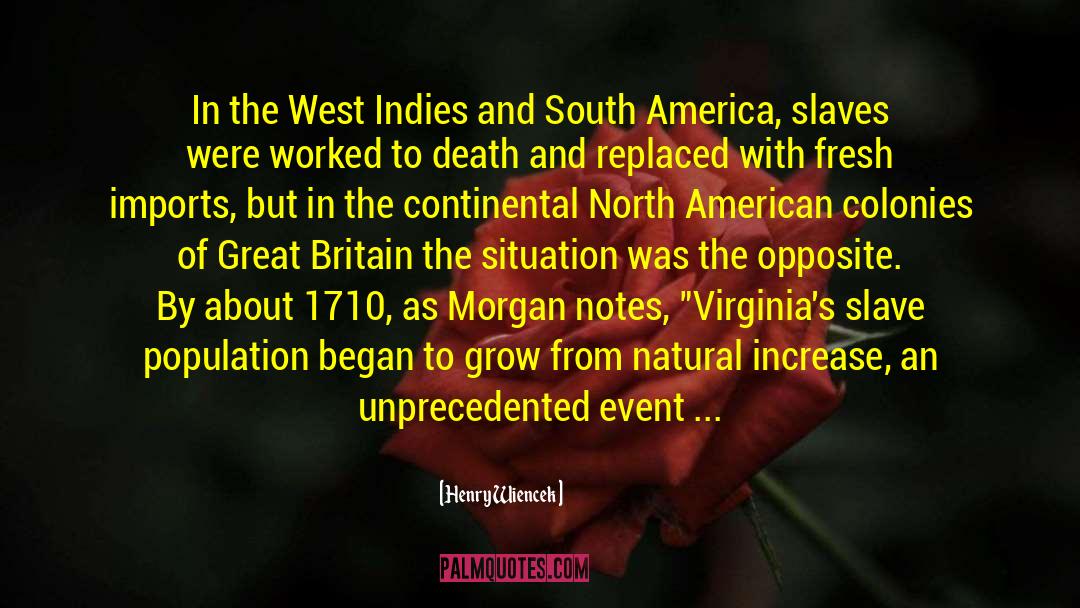Henry Wiencek Famous Quotes
Reading Henry Wiencek quotes, download and share images of famous quotes by Henry Wiencek. Righ click to see or save pictures of Henry Wiencek quotes that you can use as your wallpaper for free.
The failure of emancipation to take root during the war is one of the great What ifs of the Revolution. Another is: What if blacks had not fought for the American cause? What if a slave had not saved Colonel William Washington's life, with the result that his cavalry charge dissolved and the Battle of Cowpens had become a British victory? As the historian Thomas Fleming speculates, both North and South Carolina might well have gone over to the British. What if Glover's regiment of Massachusetts sailors had not had the manpower to complete the evacuation of Washington's army before the fog lifted in New York - and Washington himself, waiting for the last boat, had been captured? *
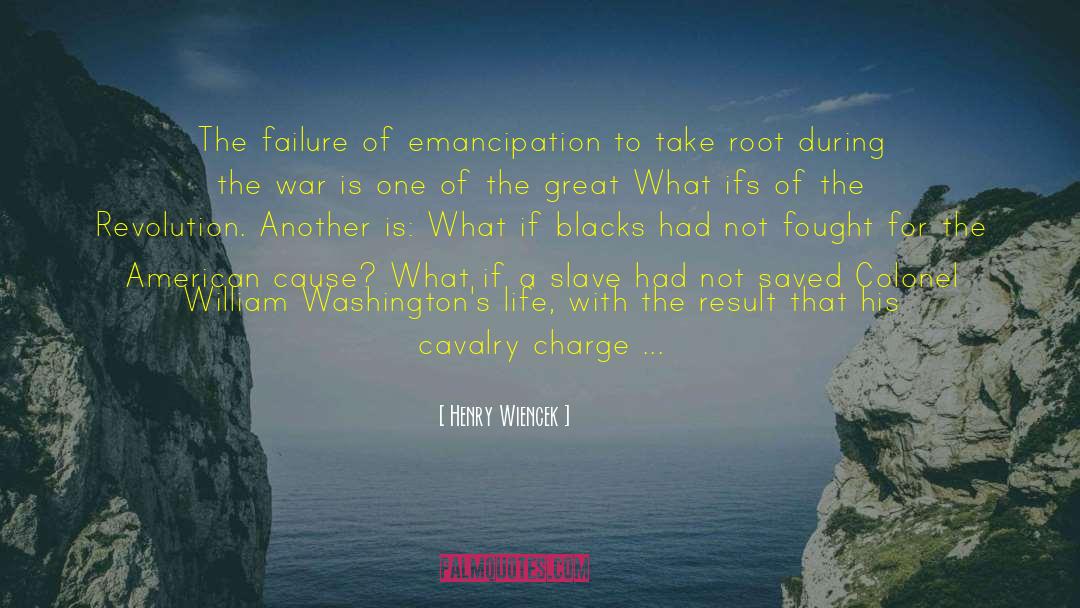
Rand herself composed a sentence that could have come from the pen of a Southern planter: "The man at the bottom who, left to himself, would starve in his hopeless ineptitude, contributes nothing to those above him, but receives the bonus of all their brains.

The fertility of the slave mothers meant that Virginia planters, including Washington, could "grow" their own labor force. One of Washington's distant cousins wrote to his manager in 1759, "the Breeding wenches most particularly, you must instruct the overseers to be kind and indulgent to." Thomas Jefferson's calculation of the economics of plantation slavery was chillingly blunt: "a woman who brings a child every two years [is] more profitable than the best man of the farm.
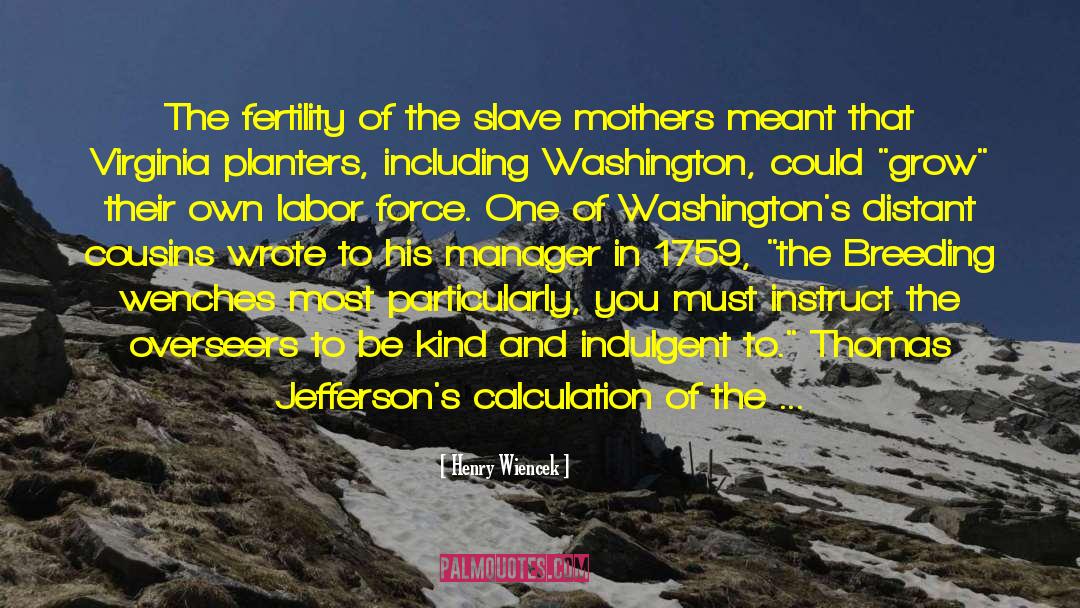
We simply cannot believe Jefferson's complaints about his slaves, which fit into his pattern of shifting blame to others for his own mistakes and weaknesses. During his presidency Jefferson averred that the slave's "burden on his master [is] daily increasing," yet as the economic historian Steven Hochman has found, "during his presidency Jefferson's nailery and his farms provided an income that should have met reasonable expectations. The debit side of Jefferson's balance sheet was where he had his problems
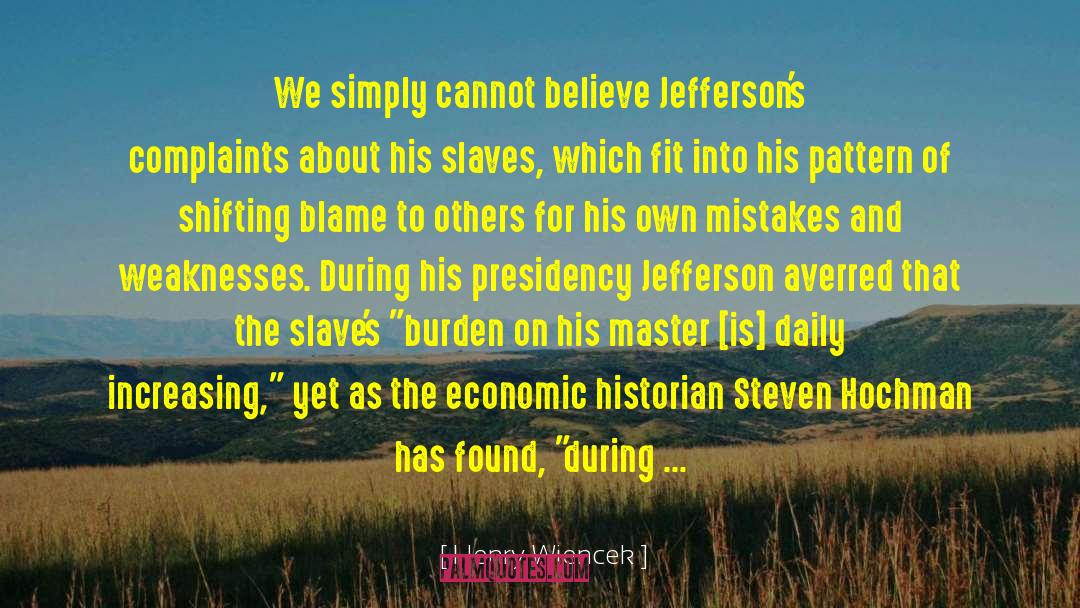
Of one slave Carter wrote, "dismembering will reclaim him.… I have cured many a Negro of running away by this means." This horrible practice, legalized in 1705, evidently became widespread, with much resultant butchery; it received further legal blessing in the tightening of the slave laws in 1723, when the Virginia Assembly absolved owners and surgeons of manslaughter if such "dismembering" resulted in the slave's death. The lawmakers assumed that no sane man would deliberately destroy his own very valuable property. It is hideous to imagine that doctors would participate in such medical atrocities, but they did.
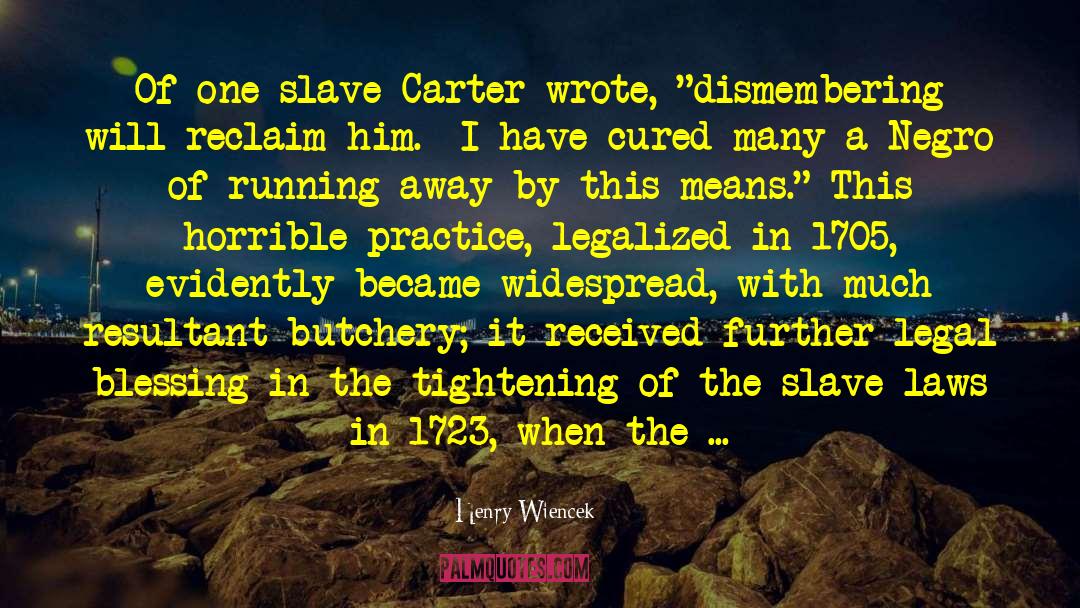
Lafayette had a powerful insight, detecting in slaveholders a combination of "prejudices, Habits, and Calculations."26 This combination acted as their engine, in place of a conscience. Racism ratified their power, as did the dispensations of Providence. They were precursors of the Ayn Rand protagonist of the twentieth century.
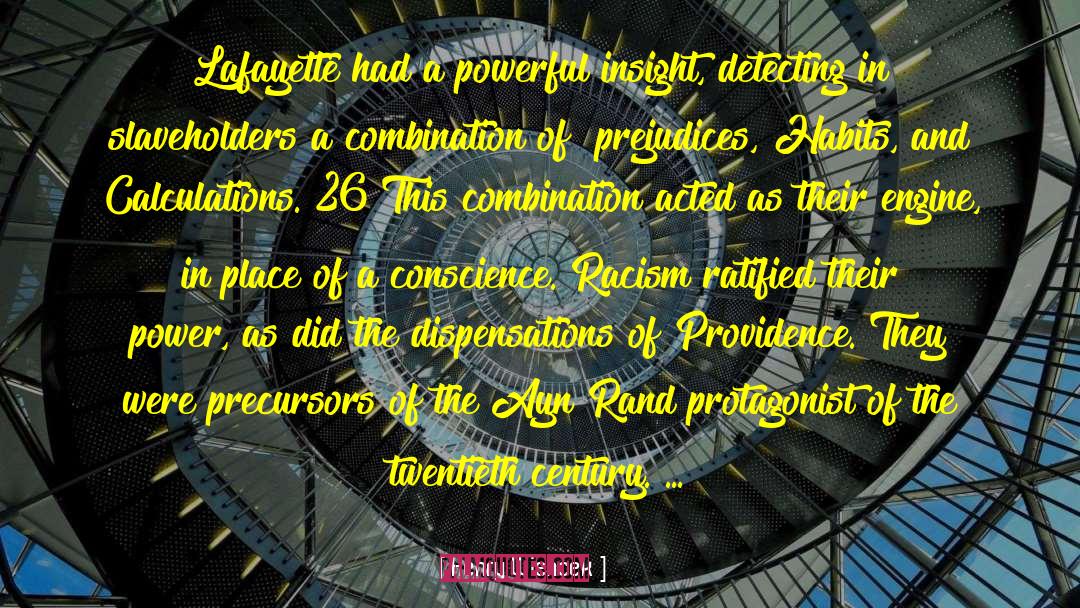
Genealogy becomes a mania, an obsessive struggle to penetrate the past and snatch meaning from an infinity of names. At some point the search becomes futile – there is nothing left to find, no meaning to be dredged out of old receipts, newspaper articles, letters, accounts of events that seemed so important fifty or seventy years ago. All that remains is the insane urge to keep looking, insane because the searcher has no idea what he seeks. What will it be? A photograph? A will? A fragment of a letter? The only way to find out is to look at everything, because it is often when the searcher has gone far beyond the border of futility that he finds the object he never knew he was looking for.
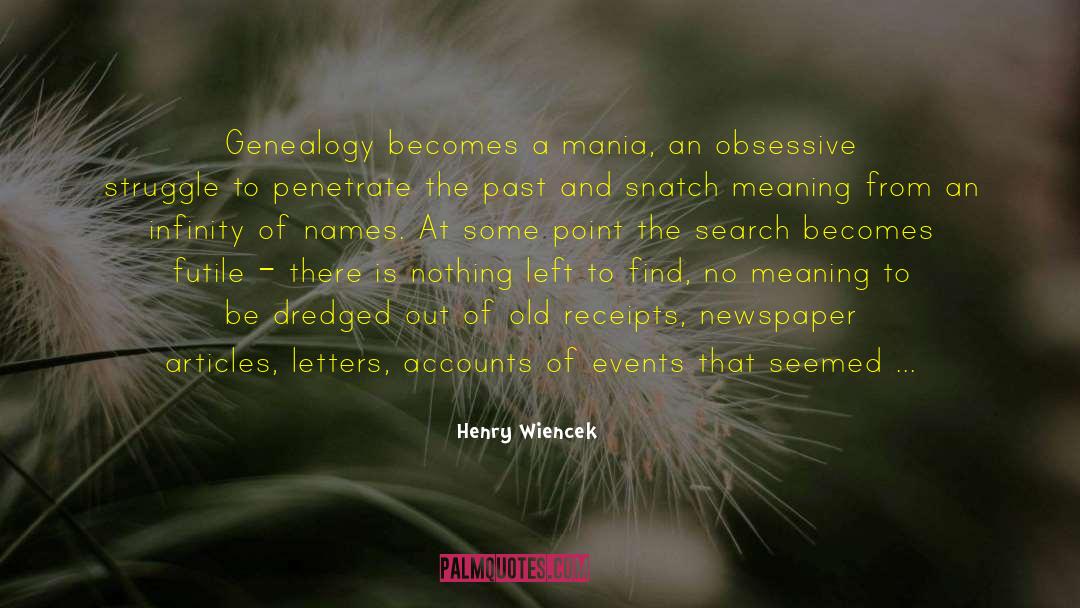
Forgotten also is Jefferson's blunt rationalization for enslaving African-Americans. Augustus John Foster, who visited Jefferson at Monticello in 1807, reported that "he considered them to be as far inferior to the rest of mankind as the mule is to the horse, and as made to carry burthens.
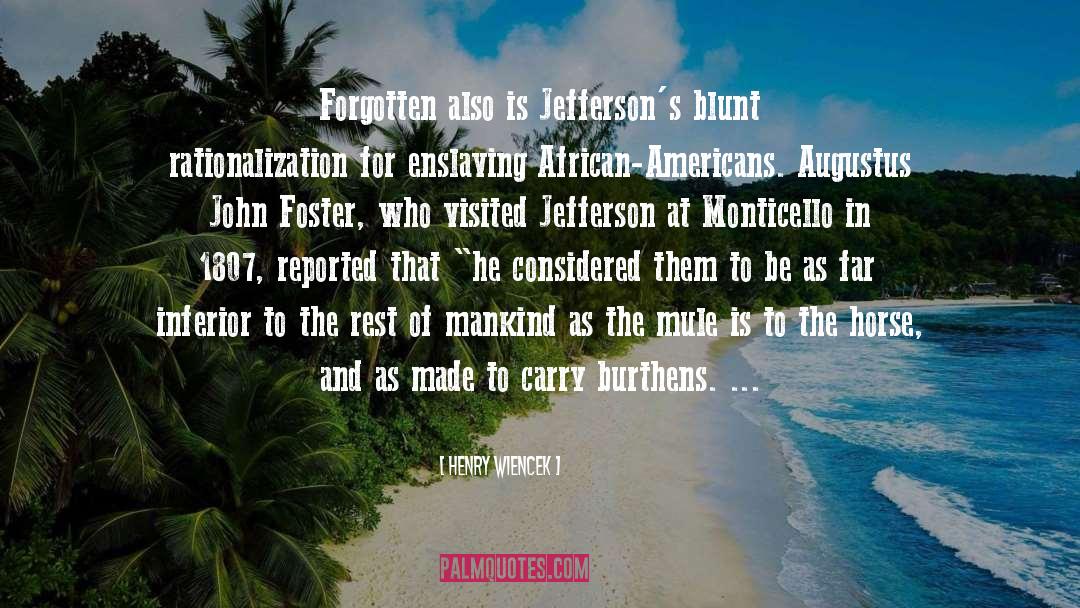
In the West Indies and South America, slaves were worked to death and replaced with fresh imports, but in the continental North American colonies of Great Britain the situation was the opposite. By about 1710, as Morgan notes, "Virginia's slave population began to grow from natural increase, an unprecedented event for any New World slave population.…In 1700 Virginia had 13,000 slaves; in 1730, 40,000; in 1750, 105,000, of whom nearly 80 percent were Virginia born.
